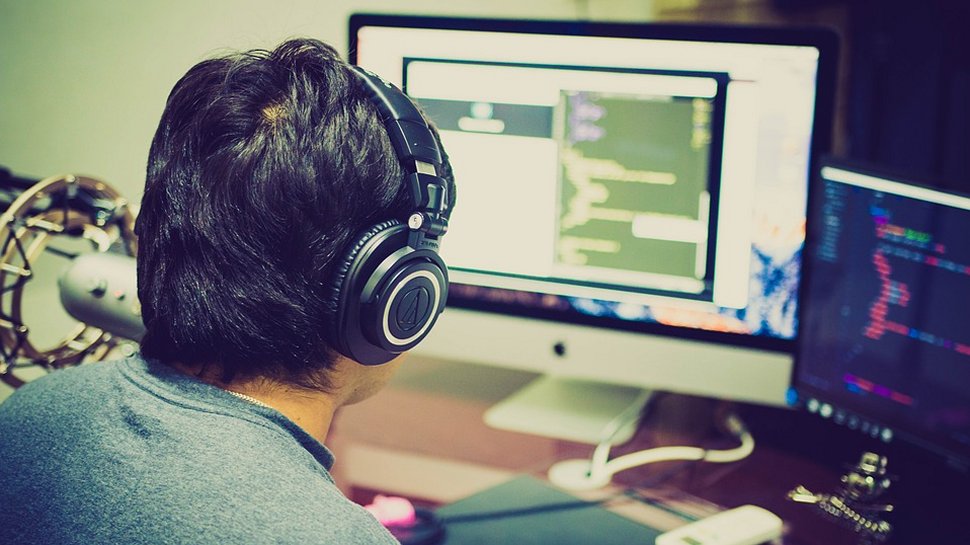How to stay productive when working remotely
Hit the ground running when you start working from home.

Thrown into the work-from-home dynamic? Completely lost on just how you'll stay productive?
Whatever your reason for remote working, it's vital to plan, get a good start, establish your work space, and maintain communications with your team. Here's how to hit the ground running when you start working from home.
Plan Everything
Where possible, avoid wasting a day on this. Take the time to plan it out the day before you start working from home.
Don't attempt working from home without first establishing a plan.
Whether you're fitting your work activities around your family or housemates, you need to know when you're working, where, and what with.
Be certain you have a computer you can use. Ensure your colleagues have the right phone number. Is your Wi-Fi up to scratch, or can you plug your laptop into the router using an Ethernet cable?
For security, do you need access to a company-established VPN to access servers? Can you log into email from home? And if any of these questions are likely to cause problems, do you have the number for your IT department?
Are you a pro? Subscribe to our newsletter
Sign up to the TechRadar Pro newsletter to get all the top news, opinion, features and guidance your business needs to succeed!
Don't leave anything to chance. Be sure you know what you're working on, what time calls are scheduled, and that you have access to all the tools, files, and other resources you need.
Establish a Workspace
Knowing where you're working is vital. Having a room you can use as a dedicated office is ideal. For many people, it might be the table you usually eat at. It might even be the sofa - just try to avoid leaving the TV on.
Your work space should be as distraction-free as possible. A bit of Spotify or local radio is one thing. An Xbox One another thing entirely.
There's also the challenge of keeping your space ready for work. In a home office environment, you can leave things as they are most of the time. For times when you need to use the dining table, be sure to have a nearby drawer where you can easily store your laptop, mouse, tablet, and any other devices.
Set Your Alarm and Get Dressed
Remember when you interviewed for the job and described yourself as "a great self-starter"? Now's the time to prove it.
Working from home is a challenge that can only be met head on. The opportunities for procrastination are far greater - as is the temptation not to get out of bed. After all, the office is only over there…
But to make a success of this, you need to be ready for work. Treat home working like you would turning up at the office.
This means getting up on time, getting breakfast (or not, depending on your diet), sorting out the children/pets/partners… and getting dressed.
Now, this cannot be emphasized enough. Preparation is key to home working, especially if its your first time and you want to make a good job of it. Treat the home office (or work space) as if it is the office at the end of the commute. Being dressed for work puts you in the right frame of mind. A suit means confidence, attention to detail, efficiency; pajamas or a onesie mean curling up on the sofa binge-watching Game of Thrones with a tub of Ben & Jerry's.
Remember, you could be called to address a video conference at any time. Don't do it in your nightie.
And while you might think you've got longer in bed, it's smarter to put this extra time to good use. Check your emails early, check into your company's collaborative platform, and update yourself on industry developments overnight.
Stay in Touch
Remote working means a renewed focus on online collaboration. You're probably familiar with working on projects with colleagues or industrial partners overseas. Enforced remote work from home, however, can be a bit different. Isolation can be difficult to come to terms with at first, which is why it is vital to stay connected with your team.
Fortunately, you have a wide selection of tools at your disposal.
Email, instant messaging tools, Skype, this week's favorite group meeting and presentation tool, even the company intranet. Maybe there's a Facebook page for colleagues.
Your focus should be on task completion and communicating the status to relevant stakeholders. You should be able to do that with any of your usual collaborative software. If it's a problem, or you're feeling lonely, pick up the phone!
Change Things Where You Can
During self-isolation periods, working from a coffee shop for a change of scenery isn't practical. While you might hit the garden, set a working area up on the desk, or chill on the balcony while you compose your latest report, the weather can be a consideration.
An office environment is all very well, but you should take the opportunity to freshen the view from time to time. This can help with enhancing productivity - even if you're simply moving the table to look out of the window.
For a truly new way of working, grab your laptop and head out into the countryside. Here you can embrace the views and the fresh air and be truly industrious. Just be sure you have a good mobile broadband signal.
Take a Break for Household Tasks
Working from home is a siloed experience. Staring at the screen for too long is not ideal whatever the environment. The solution is to take a break. Around 15 minutes every hour you work is the ideal ratio, although this can differ based on the type of work you do.
However, there is no water cooler at home. No one to chat to - it can get boring in this regard. One way around this is to exploit your time away from the computer by doing something completely different.
It could be a quick dust, a run over the carpet with the vacuum cleaner… maybe wash up, polish the china, change the bedding.
The idea behind this is simple: switching off from work can reduce stress, giving you something else to focus on for a short time. This helps to ensure you return from your break recharged, fresh, with a renewed energy and focus.
- We've featured the best alternatives to Microsoft Office.
Christian Cawley has extensive experience as a writer and editor in consumer electronics, IT and entertainment media. He has contributed to TechRadar since 2017 and has been published in Computer Weekly, Linux Format, ComputerActive, and other publications. Formerly the editor responsible for Linux, Security, Programming, and DIY at MakeUseOf.com, Christian previously worked as a desktop and software support specialist in the public and private sectors.
